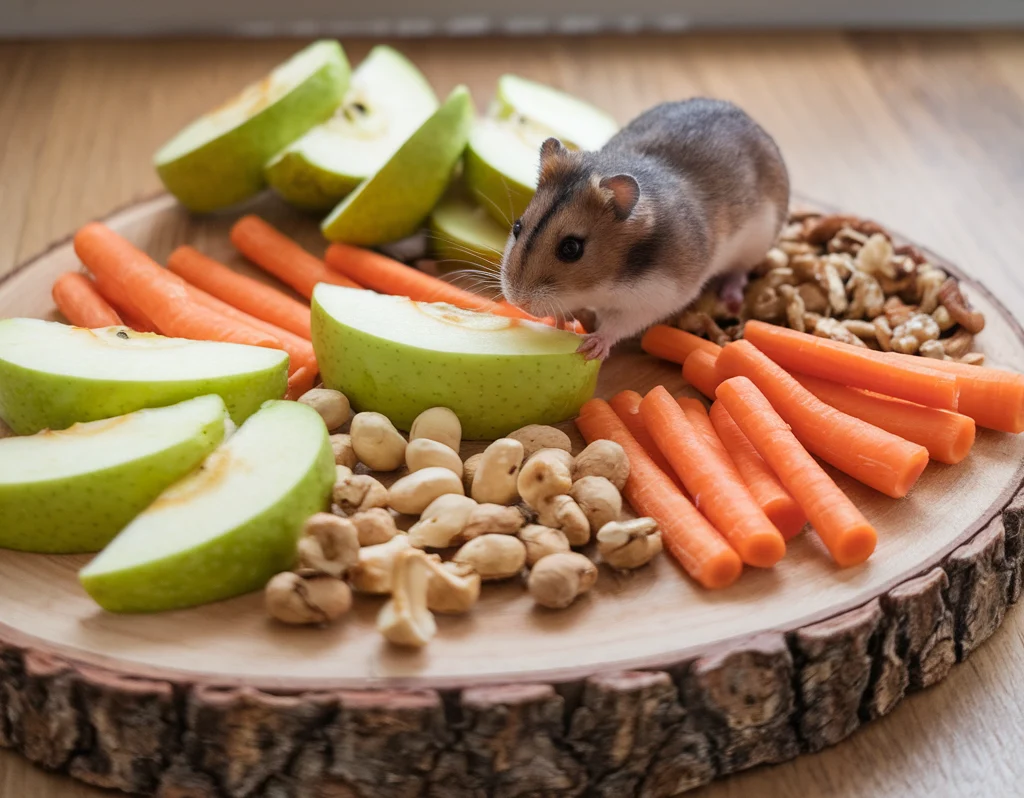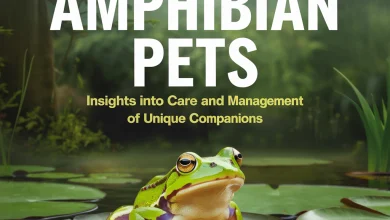Healthy Foods for Hamsters: Nourishing Your Furry Friend

Hamsters are small, adorable pets that require a balanced diet to thrive. A proper diet not only keeps them healthy but also supports their natural behaviors and energy levels. Here’s a guide to healthy foods you can offer your hamster, ensuring they receive the nutrients they need.
1. Commercial Hamster Food
Pelleted Diets
- Hamster Pellets: Choose high-quality commercial hamster pellets as the primary food source. These pellets are specially formulated to provide balanced nutrition, containing essential vitamins and minerals.
Seed Mixes
- Seed Mixes: While some hamsters enjoy seed mixes, it’s crucial to choose those with a good balance of seeds, grains, and dried fruits or vegetables. Look for mixes that are free from excessive sunflower seeds and other high-fat ingredients.
2. Fresh Fruits and Vegetables
Fruits (in moderation)
- Safe Fruits: Offer small pieces of safe fruits like apples (remove seeds), bananas, blueberries, strawberries, and watermelon. Avoid citrus fruits, as they can be too acidic for hamsters.
Vegetables
- Safe Vegetables: Include a variety of fresh vegetables such as:
- Carrots: Rich in vitamins and low in calories.
- Broccoli: A good source of vitamins and fiber.
- Cucumbers: Hydrating and low in calories.
- Bell Peppers: High in vitamin C.
3. Grains and Seeds
Healthy Grains
- Oats: Offer plain rolled oats as a treat. They are nutritious and loved by hamsters.
- Whole Wheat Bread: A small piece of whole wheat bread can be offered occasionally.
Seeds
- Sunflower Seeds: Provide in moderation due to their high-fat content. They can be a tasty treat but should not make up a large part of the diet.
- Pumpkin Seeds: These are nutritious and can be offered as occasional treats.
4. Protein Sources
Cooked Proteins
- Cooked Egg: A small piece of scrambled or hard-boiled egg can be offered as a protein-rich treat.
- Cooked Chicken: Lean, cooked chicken without seasoning can also be given in small amounts.
Mealworms
- Dried Mealworms: These can be a great source of protein and are usually well-accepted by hamsters.
5. Special Treats
Nuts (in moderation)
- Unsalted Nuts: Offer a small piece of unsalted nuts like almonds or walnuts as a treat. They are high in fat, so moderation is key.
Herbs
- Fresh Herbs: Small amounts of fresh herbs like parsley or cilantro can be a nutritious addition to their diet.
Feeding Tips for Hamsters
- Introduce New Foods Slowly: When introducing new foods, do so gradually to prevent digestive upset.
- Portion Control: Avoid overfeeding. Offer small portions of fresh foods daily and remove uneaten portions to prevent spoilage.
- Fresh Water: Always provide fresh, clean water in a water bottle or dish. Change the water daily to keep it clean.
- Avoid Toxic Foods: Certain foods are harmful to hamsters, including:
- Chocolate
- Onion
- Garlic
- Citrus fruits
- Raw beans
Conclusion
A healthy diet is essential for your hamster’s well-being and longevity. By providing a balanced mix of commercial hamster food, fresh fruits and vegetables, grains, and occasional protein sources, you can ensure your furry friend remains happy and healthy. Always consult your veterinarian for specific dietary recommendations based on your hamster’s age, size, and health needs.



